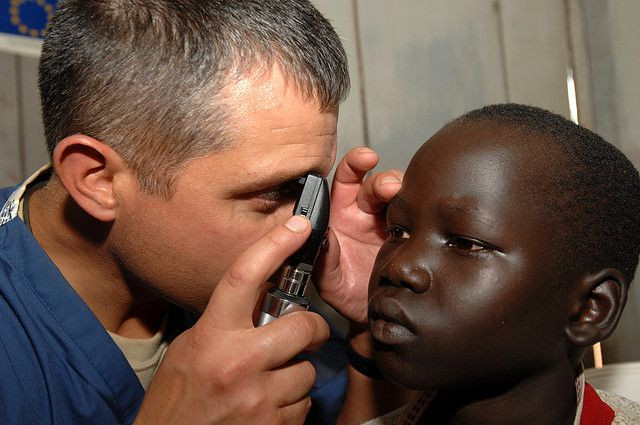Ebola Outbreak In Guinea Faces Tough Opposition From WHO’s New Action Plan

Recent headlines have been filled with news concerning the current Ebola outbreak affecting Africa's west coast. In the midst of all these statistics on increasing infection numbers and horrific death tolls, the World Health Organization has given the region a bit of hope with the release of their emergency measures against the outbreak. It has reminded us that not all is lost and that by following through with this action plan, West Africa may soon see an end to this deadly outbreak.
Dr. Keiji Fukuda, WHO assistant director-general, described the current West African Ebola outbreak as “one of the most challenging outbreaks of Ebola” the continent had ever seen, Reuters reported. To combat the widespread disease, the WHO revealed their plan of action to begin training 70 people in Guinea to spread out among the infected communities in order to help track down those who had come in close contact with Ebola patients. This will hopefully stop the further spread of infection. The agency has also set up a special alert and response operation center in the Guinean ministry of health. This center will be responsible for handling all matters related to the Ebola scare. The final tactic that the WHO will use to fight the Ebola outbreak will be a training program for staff at Guinea’s Donka national teaching hospital. This program will soon reach other health facilities in the area as well.
As of April 10, 2014, the virus has infected 157 individuals in Guinea, and of that number, killed 101. Although the outbreak began in the forested countryside, it has now spread to the capital Guinean city of Conakry, which has a population between 1.5 and two million residents. In Liberia, there have been 21 confirmed cases, which include 10 deaths.
The WHO has not yet put any travel or trade restrictions on the area yet, according to the Business Recorder. Other countries have however begun to cut off contact with Guinea. Senegal has closed it busy border with Guinea, sacrificing its important trading markets for the health of its citizens. Saudi Arabia has also cancelled any pilgrim visas to Mecca for Guinean citizens, The Guardian reported. WHO reports that nine out of 10 people infected with Ebola die from the virus. There is no cure, vaccine, or treatment. The only way to care for those already infected with Ebola is to keep them hydrated and treat any secondary infections that they may have.
Earlier this week, the WHO announced that it may take two to four months before the outbreak can be officially considered over.



























